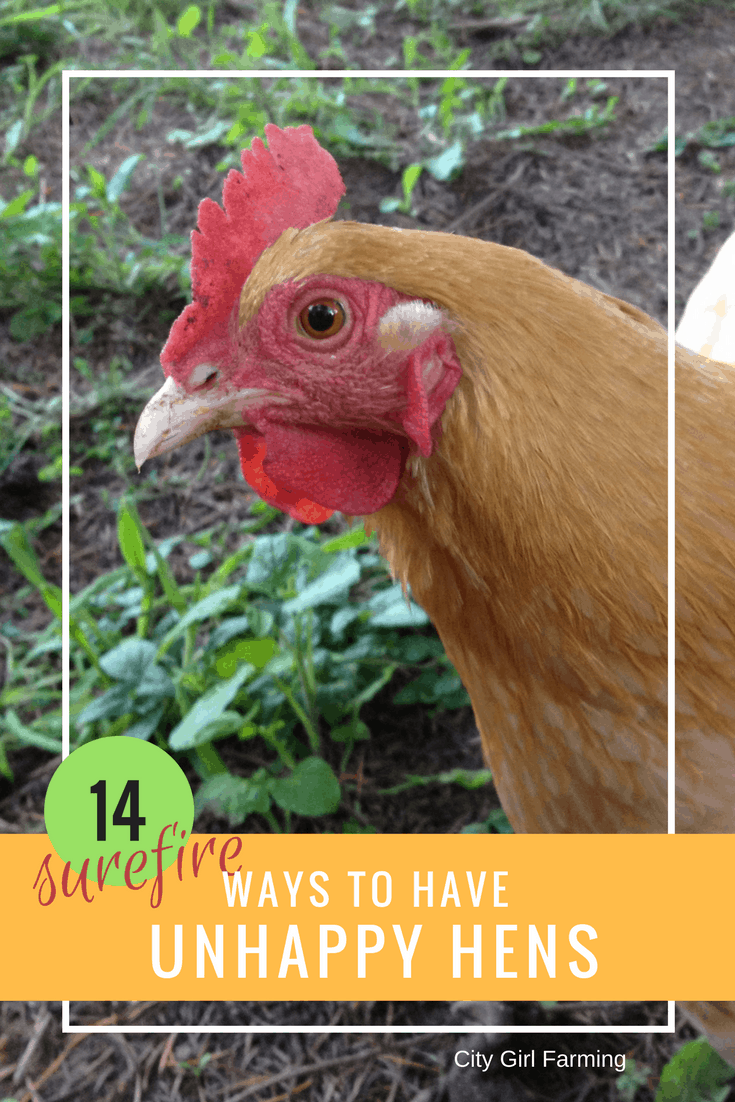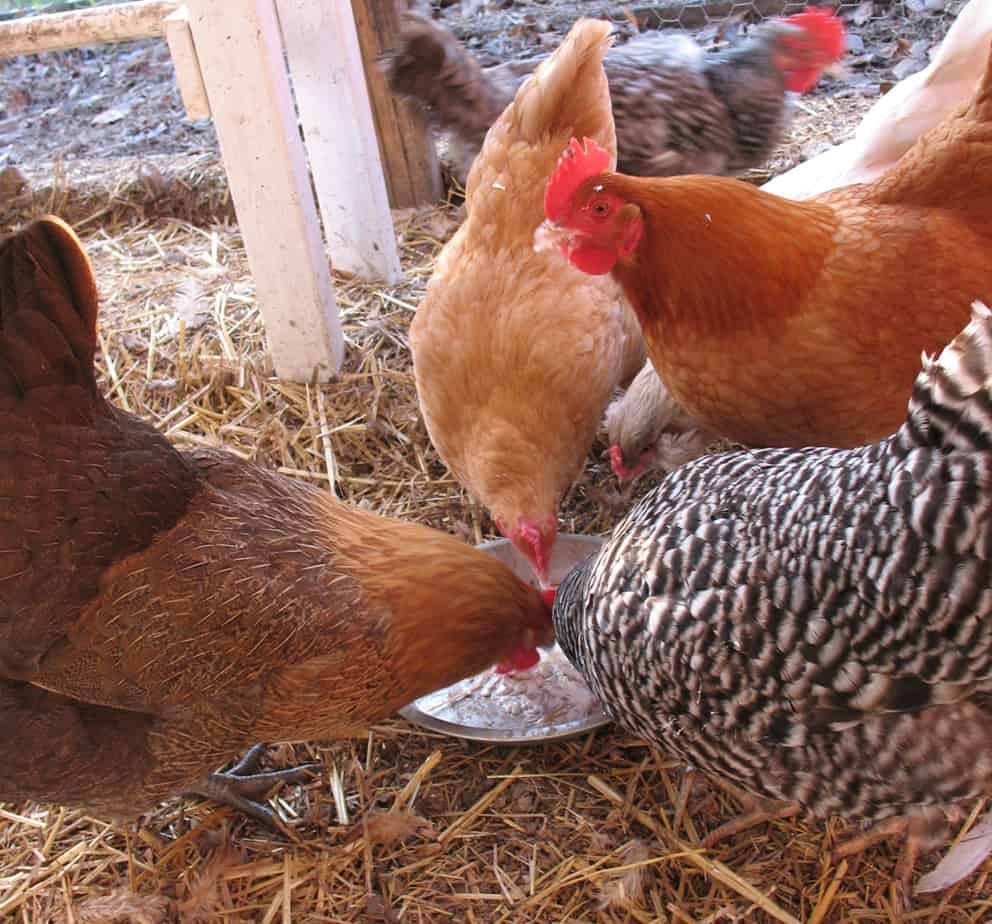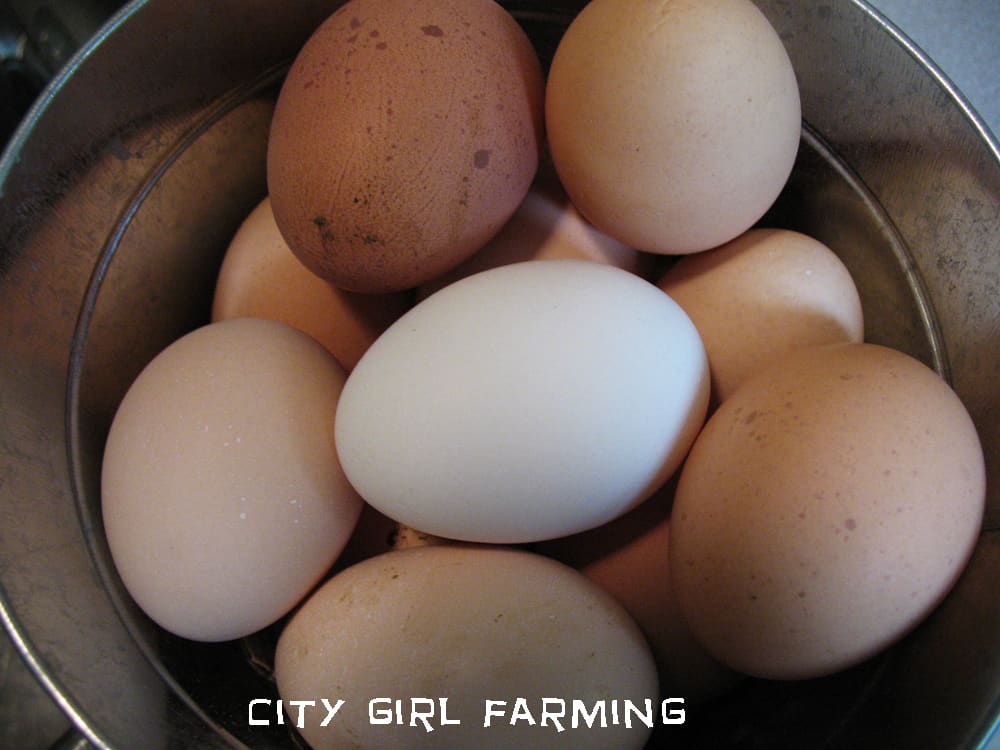 Maybe you already have backyard chickens. Maybe you’re just thinking about it. Either way, here’s some suggestions on what to do if you want to ensure you have an unhappy flock of hens:
Maybe you already have backyard chickens. Maybe you’re just thinking about it. Either way, here’s some suggestions on what to do if you want to ensure you have an unhappy flock of hens:
- Cram too many birds into too small a space. It’s not like they need a penthouse!
- Make sure they’re subjected to regular doses of rain and wind. They’re outdoor animals. They need to get used to it.
- Sporadically feed and water them. Skip it when you feel like it. They should learn to fend for themselves.
- Don’t worry about giving them fresh water. The dirty, poopy stuff is just fine. They like to drink out of mud puddles anyway.
- Never clean out the coop. They will just get it dirty again.
- Fling open the nest box while they’re laying eggs and disrupt what they’re doing.
- Don’t worry about locking them in at night. You can’t baby them forever. They should learn to defend themselves against predators.
- Keep the yard where they live in loud chaos.
- Don’t get too fancy with the coop. Why build a roost? They can sleep on the floor. Privacy in the nest boxes? Get real! Again, not a penthouse.
- Don’t isolate sick birds. What do they think this is, a bed and breakfast?
- Keep them away from the dirt. That whole dirt bath thing is just gross. How can they get clean that way?
- Don’t worry about them getting too hot in the summer or too cold in the winter. They need to toughen up.
- Change up the routine as often as possible. The best way to embrace change is to learn to adjust to it. They should be more flexible.
- Don’t worry about what you feed them. Chicken food is chicken food, right? And oyster shells and grit? Why waste money on that?
Of course you know I’m being sarcastic! Chickens really are happy by nature, but they do need their basic needs taken care of:
Living quarters that allow enough space (a minimum of 4 square feet per bird in BOTH the run and coop), shelter from the elements (and predators), dirt to bathe in, a roost, and some privacy in their nest boxes. All of this in a coop that is cleaned regularly with a chicken run attached to it.
The right kind of food for their age and purpose (ie chick food for the chicks, layer food for the layers), along with grit (to help them ‘chew’ their food) and calcium (to help them lay stronger eggs). A treat or two from time to time wouldn’t hurt either. Weeds, vegetables, fruit, cracked corn, etc. (Here’s a list of things NOT to feed your chickens.) And clean water.
Medical attention when needed (and isolation from the rest of the flock to keep the others from getting sick).
An environment that isn’t in constant chaos or always changing.
It’s all pretty easy. Just some basics. It doesn’t take tons of time and effort. Really.
And your reward? Hens that flock to you when you step into the yard. Chickens that entertain you constantly with their antics and personality. Enough fertilizer to start commercial farming (okay, maybe not that much, but close!)
And, of course, delicious, good for you, backyard eggs.
What’s not to love about a trade off like that?

